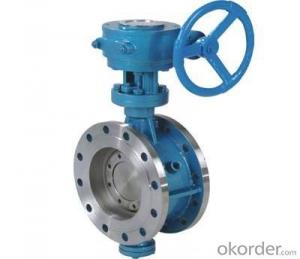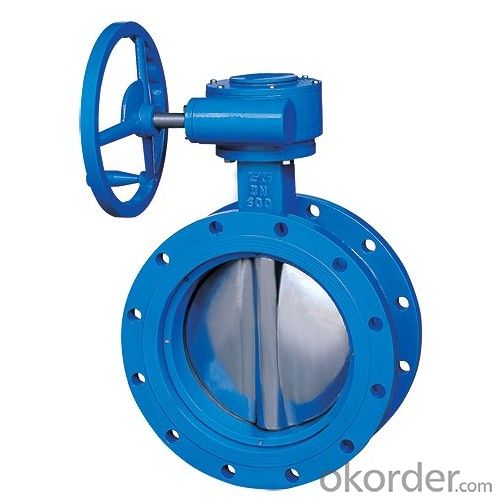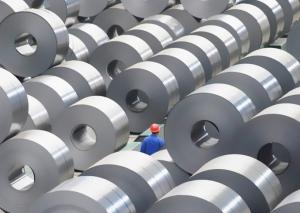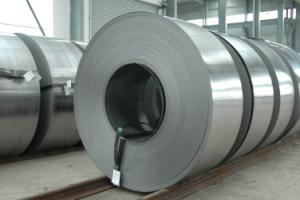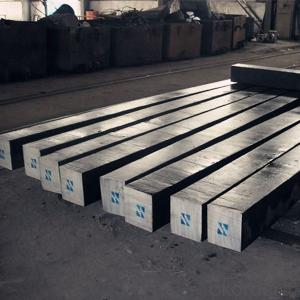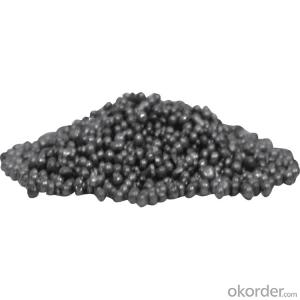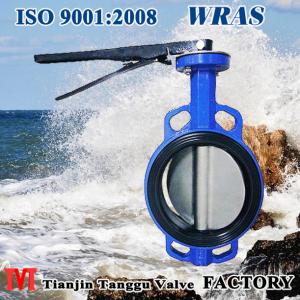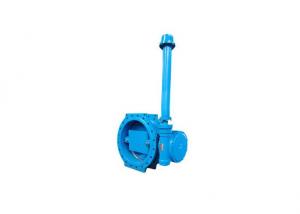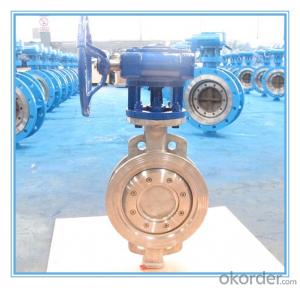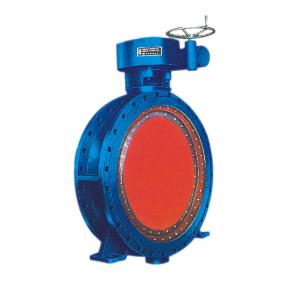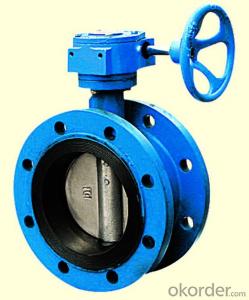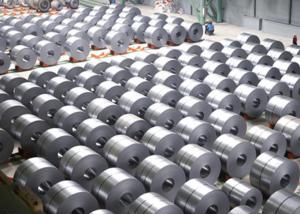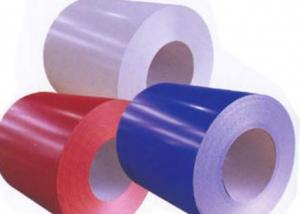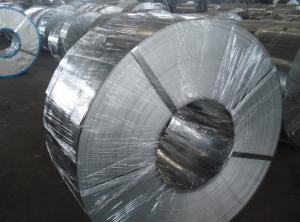Flange type rubber seated butterfly valve with by pass
- Loading Port:
- Tianjin
- Payment Terms:
- TT OR LC
- Min Order Qty:
- 100 kg
- Supply Capability:
- 10000 kg/month
OKorder Service Pledge
OKorder Financial Service
You Might Also Like
Specifications
Flange butterfly valve with by pass
Design: EN593
Face to face: DIN3202 F5
Flange: EN1092
Pressure test acc.to: EN12266
Flange type rubber seated butterfly valve with by pass
1. Size, pressure, medim and temp. range as listed below:
Size | DN100 to DN4000 |
Pressure | PN10, PN16, PN25, PN40 |
Suitablem | sea water, and other weak corrosive liquid etc. |
Temp. | -10~120°C |
2. Standard items:
Description | Standard |
Design and manufacture | EN593 |
Face to face | ISO5752 series15, EN558-1 series 15, DIN3202 F5 |
Flange and drilling | ISO7005-2, EN1092, |
Pressure test | EN12266 |
Top flange of bare shaft valve | ISO5211 |
Top flange on worm gearbox for e-actuator | ISO5210 |
3. Main part material items:
Name | Material |
Body | ductile cast iron, WCB, stainless steel |
Disc | ductile cast iron, WCB stainless steel, Al-bronze |
Stem | SS420, SS431 or as request |
Disc seat ring | EPDM |
Body seat ring | SS304 |
Retainer | SS304 |
Shaft bearing | Al-bronze, self-lubricating bearing |
Bolt & nuts | SS304 |
Coating | epoxy coating, thickness: min. 250 microns, color code: RAl5015, 5017, 5010, and etc. |
Notes: Other materials are available on request
4. Operating mode: bare shaft, worm gear+handwheel, electirc actuator, pneumatic actuator, hydraulic actuator, etc.
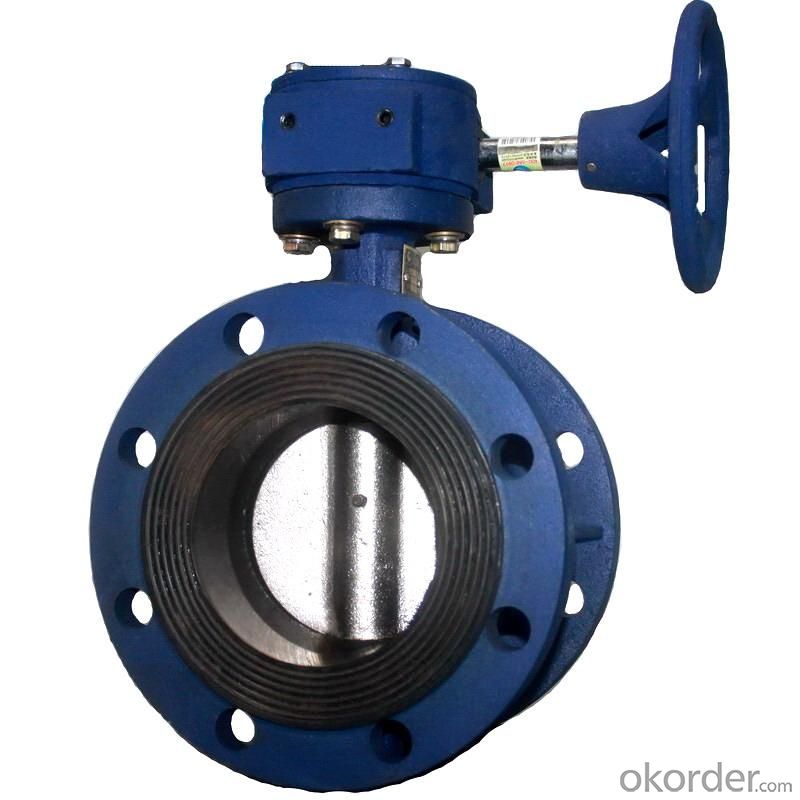
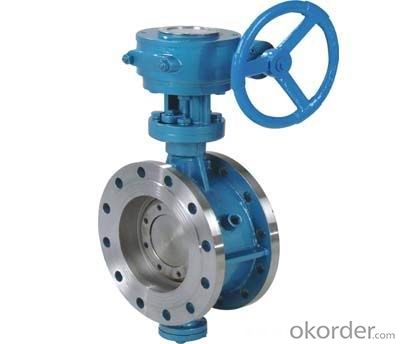
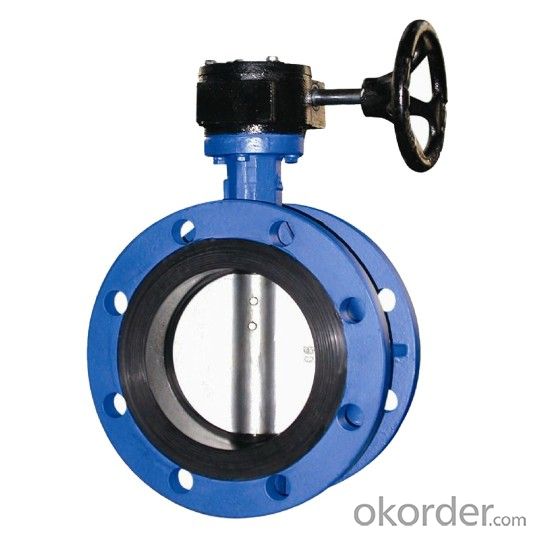
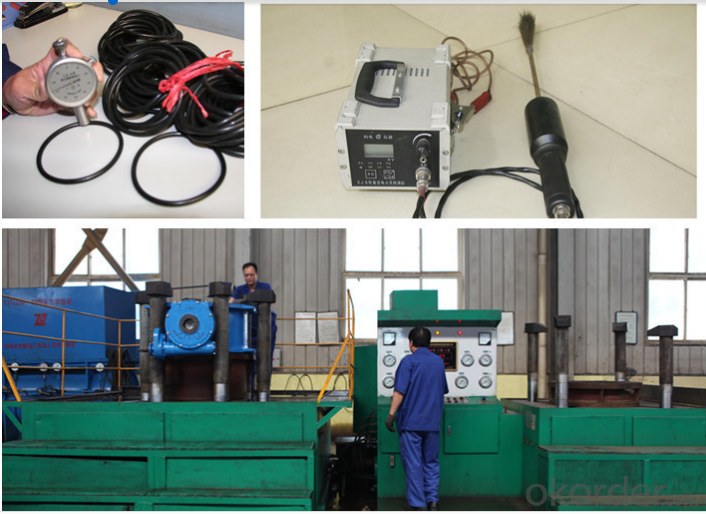
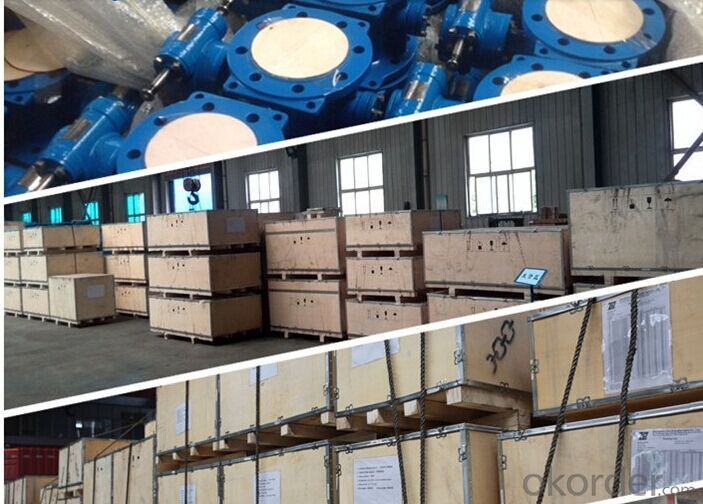
- Q: What are the properties and characteristics of different steel products?
- Different steel products have various properties and characteristics depending on their composition and manufacturing processes. Some common properties of steel products include high strength, durability, and resistance to corrosion. Additionally, steel products can be categorized based on their specific characteristics such as hardness, ductility, and toughness. Moreover, different steel products can have specific applications due to their unique properties, such as structural steel for construction, stainless steel for food processing and medical equipment, or tool steel for manufacturing tools and machinery.
- Q: What are the properties of stainless steel that make it corrosion-resistant?
- Stainless steel is corrosion-resistant due to its unique properties, including a high chromium content that forms a protective oxide layer on its surface, preventing further oxidation and corrosion. Additionally, it contains other alloying elements like nickel and molybdenum, which enhance its resistance to various corrosive environments. The presence of these elements results in stainless steel's exceptional durability, longevity, and ability to withstand exposure to moisture, chemicals, and harsh conditions without significant degradation.
- Q: How is steel mesh used in construction?
- Steel mesh is commonly used in construction for reinforcing concrete structures. It is placed within the concrete to provide additional strength and prevent cracking or failure. The mesh helps distribute the load evenly, making the structure more durable and resistant to various forces such as tension and compression. Additionally, it can be used in constructing fences, partitions, or as a safety barrier.
- Q: How do steel products contribute to the construction of hospitals and healthcare facilities?
- Steel products play a crucial role in the construction of hospitals and healthcare facilities. They are used in various applications, such as structural frameworks, support beams, and roofing systems. Steel's strength and durability ensure the safety and stability of these structures, making them capable of withstanding heavy loads and adverse weather conditions. Additionally, steel's versatility allows for flexible building designs and the incorporation of advanced technologies, such as medical equipment and electrical systems. Overall, steel products are essential in creating reliable, efficient, and modern healthcare facilities that can provide high-quality medical care to patients.
- Q: How are steel pipes used in oil and gas pipelines?
- Steel pipes are used in oil and gas pipelines due to their strength, durability, and resistance to corrosion. They serve as the primary material for transporting oil and gas over long distances, ensuring a safe and efficient flow. These pipes are laid underground or underwater and are capable of withstanding high pressure and extreme temperatures, making them essential for the energy industry's infrastructure.
- Q: What are the main properties of steel?
- The main properties of steel include high tensile strength, excellent durability, good heat resistance, and the ability to be easily shaped and welded. It is known for its hardness and toughness, making it suitable for a wide range of applications in construction, manufacturing, and automotive industries. Steel also exhibits good electrical and thermal conductivity, along with corrosion resistance, making it a popular choice for various structural and engineering purposes.
- Q: What are the different types of steel coatings and finishes available for steel products?
- There are several types of steel coatings and finishes available for steel products, including galvanized coatings, powder coatings, painted finishes, and stainless steel finishes. Galvanized coatings provide corrosion resistance by applying a layer of zinc to the steel surface. Powder coatings involve electrostatically applying a dry powder onto the steel, which is then cured to form a durable and attractive finish. Painted finishes involve applying liquid paint to the steel, providing both protection and aesthetic appeal. Stainless steel finishes utilize a process of passivation or electropolishing to enhance the steel's natural corrosion resistance and create a smooth, polished surface.
- Q: What are the common types of steel products used in the pet grooming and care industry?
- The common types of steel products used in the pet grooming and care industry include grooming scissors, shears, clippers, and grooming tables. These steel products are essential for various grooming tasks such as cutting hair, trimming nails, and maintaining a clean and hygienic environment for pets.
- Q: How is steel used in the construction of underground utilities?
- Steel is commonly used in the construction of underground utilities due to its durability and strength. It is used in the form of pipes, conduits, and casings to house and protect various utility systems such as water, gas, and electrical lines. Steel's resistance to corrosion and its ability to withstand high pressure and heavy loads make it a reliable choice for underground infrastructure, ensuring the safe and efficient delivery of essential services.
- Q: What are the different types of steel wire ropes and their uses in marine applications?
- There are various types of steel wire ropes used in marine applications. Some common ones include galvanized steel wire ropes, stainless steel wire ropes, and PVC-coated steel wire ropes. Galvanized steel wire ropes are coated with zinc to protect against corrosion and are commonly used for general marine applications such as mooring lines, towing, and rigging. Stainless steel wire ropes, on the other hand, are highly resistant to corrosion and are often utilized in marine environments with high exposure to saltwater, such as for yacht rigging, fishing nets, and architectural elements on boats. PVC-coated steel wire ropes provide an additional layer of protection against corrosion and are suitable for applications where abrasion resistance is required, such as in winches, cranes, and lifting equipment used in marine settings. Overall, the choice of steel wire rope in marine applications depends on factors like the level of corrosion resistance needed, the specific application requirements, and the environmental conditions it will be exposed to.
Send your message to us
Flange type rubber seated butterfly valve with by pass
- Loading Port:
- Tianjin
- Payment Terms:
- TT OR LC
- Min Order Qty:
- 100 kg
- Supply Capability:
- 10000 kg/month
OKorder Service Pledge
OKorder Financial Service
Similar products
Hot products
Hot Searches
Related keywords
